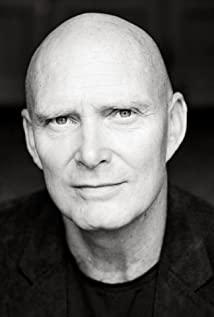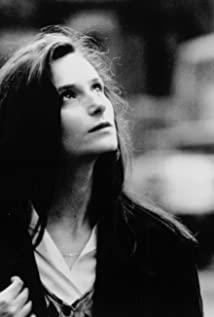I wanted to see this movie because Dou Wentao told the movie with a rather old driver's interest. He said that such a person deserves to go to heaven.
The first time I came into contact with Lars von Trier was "Female Addict". The whole film is divided into chapters and the characters are the main lines. Just like literature, this film is also the same.
If I had to describe the heroine in one word, it would probably be pure.
The protagonist Beth is a regular visitor to the church at the beginning. She seems to be a faithful believer, playing the role of a heavenly father, asking and answering questions, being grateful for love, and seeking confidence when their marriage is going through a rough patch. Heading to the big ship, she prayed to the Father for protection.
But she doesn't seem to be. She says that there is a lack of bells in the church, she speaks in the church, and she says that women should also have a place in the church.
The tone of the entire film is very dark, the scenes in the church lack light, like a simple documentary, the heroine is wrapped in shadows, making her look like she has no chance of winning, when she finishes talking in the church in the revealing clothes she wears for prostitution For her understanding of love, being expelled from the church by a few strong men also made her fragile and innocent look more like a weakling. Still, the idea of speaking in church as a woman came true.
At her funeral, several elders of the church said that she was bound to go to hell, as in the opening scene of the film. Dudu violated the rules that women should not appear at funerals at this time and said that they were not qualified to curse her to hell.
The behavior of believers in the local area is restricted and influenced by several elders, and it seems that it is up to them to decide whether to go to hell or not.
Dudu said that, fortunately, she is not a local and does not have to understand their beliefs.
These clips remind me of Savonarola, an influential missionary who was executed because of his mission to the poor who destroyed many works of art and persecuted many innocent people.
When the rules of power and death are greater than personal beliefs, and tolerance is lost, is religion enough to be called a consolation?
"What is your talent?"
"I can believe"
Is Beth religious, I think so.
When Beth found out that her husband would get better when he heard about her having sex with other men, she did it.
Came to Dr. Richardson's house to strip naked in the bedroom to seduce, but the doctor refused, she cried in bed, and at the end of the movie the doctor tried to convince her husband that he was insane and could not let him do what he did, and let her husband Signed the papers to isolate Beth. The doctor's ambiguous attitude is revealed here. He intended to protect Bess from harm, but when Bess cried in bed or drove him away at the door, what he might have done was precisely the harm. The love in his eyes is the principle of caring carefully and not losing his own, while the love in Beth's eyes is everything to her, redemption and selfless dedication.
The mother's attitude was a little surprising. When Beth was saddened by her husband's departure, she rebuked her that women should endure loneliness. After hearing rumors about her daughter, Beth, who was chased by several children, knocked on the door. I prayed to my mother to open the door. My mother stood inside the door, sad and sad, but she did not open the door.
Injured Beth pushed the cart down the road, passing by the children who had been friendly to her not long ago, tried to say hello, did not respond, chased after her and threw stones at her from behind until she left. fell to the ground. And the man who knew Beth well in the church chased away the children, but just glanced at her and left, maybe he was still reluctant, Dudu came soon, but he himself felt that this fell to the ground woman dirty.
Even if she is not for her lover but an ordinary prostitute, should she be treated like this.
"Others are hell," said the Marquis de Sade.
"In the end, there are only sadomasochistic and masochistic relationships between people." Another example is Sartre.
In a system of social rules solidified by subtle concepts, when human beings are reduced to tools of the times, what is the outlet of human nature?
When the self is deprived and we cannot enter the free will of the other, what are the boundaries of morality.
If I, like the heroine Beth, have my only belief, it doesn't seem like a bad thing to die for. If I believe it, I believe that there will be a moment when I will feel that I will die without regret. What is the point of other people's accusations, I can't feel it anyway.
"She'll do everything for you."
Beth, who would break down the moment she left her husband, initially thought he was letting her have sex with other men so that she wouldn't be tied down, and I thought so too. When he says it will remind him of the moment he had sex with her and keep him alive, she succumbs. Regardless of their own cowardice, regardless of other people's eyes, to suffer until death.
When the male protagonist sank her bruised body into the sea, I think he also really loves it, but their love is not the same. She loves him, she is his.
At the end of the film, the mother and the heroine reconcile, the husband recovers, and the bells of heaven ring, perhaps a tribute to love.
"The cause of her death was kindness," Dr Richardson told the court.
Such people deserve to go to heaven, and I feel the same way. I am a romantic person. I don't like love being criticized by morality. I think love is love, and the parties feel that it is worth turning their backs and sacrificing anything, then it is worth it.
Beth gave up her dignity and life for love, which reminded me of Wang Jiazhi in "Lust, Caution" who gave up her loyalty and life for love.
What can you give up for love.
View more about Breaking the Waves reviews











